Category: Terminal Illness
Articles about terminal illnesses that one typically sees and cares for on hospice.
Articles about terminal illnesses that one typically sees and cares for on hospice.

Caring for a loved one with dementia can be challenging, especially when it comes to preventing falls. One innovative and inexpensive solution is using pool noodles as bed bumpers. This article provides a comprehensive guide on effectively utilizing pool noodles to create a safe and secure sleeping environment, reducing the risk of falls and injuries. From selecting the right noodles to proper installation techniques, we cover everything you need to know to ensure your loved one's safety and peace of mind.

Caring for terminally ill patients in denial can be challenging. This article explores why understanding denial is crucial and offers strategies for compassionate care. Techniques like Naomi Feil's validation therapy and motivational interviewing are highlighted to support patients respectfully, maintaining their dignity and emotional well-being.

Entering hospice care often means a terminal prognosis, but does it always mean death? This article delves into the purpose of hospice, the criteria for entering hospice care, and whether recovery is possible. Understand the nuances and what families and patients expect during this critical time.

Discover the transformative impact of music on dementia patients in this comprehensive guide. From improving cognitive function to enhancing mood and social engagement, music therapy offers a non-pharmacological approach to dementia care. Explore the science, benefits, and practical applications of integrating music into treatment plans for dementia patients.
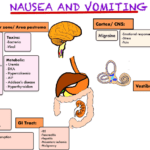
Nausea and vomiting are common and distressing symptoms in terminally ill patients. This comprehensive guide offers practical advice for caregivers and healthcare professionals on managing these symptoms, including pharmacological and non-pharmacological approaches, diet and lifestyle changes, and when to seek additional help.
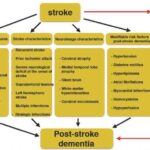
Stroke-induced dementia is a complex condition that affects both patients and their caregivers. In this guide, we’ll explore the impact of strokes on cognitive function, practical caregiving strategies, and considerations for maintaining quality of life.
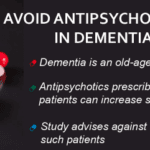
Unveiling the connection between antipsychotic drugs and dementia, this article delves into how these medications may elevate the risk or exacerbate symptoms. It provides a thorough examination of current research, expert opinions, and alternative approaches to managing dementia.

Unveiling the pivotal events that may fast-track dementia progression. This article delves into how fractures, ulcers, infections, dietary habits, and certain medications like statins play a role in accelerating the onset and severity of dementia symptoms.
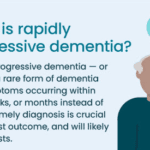
This article explores Rapidly Progressive Dementias, detailing risks, causes, and management strategies. It also provides essential information on hospice services and how they support patients and caregivers during challenging times.

Living with dementia brings unpredictable days. This guide delves into the factors that influence the good and bad, offering insights and practical tips for caregivers to navigate the ever-changing landscape of dementia care, ensuring every day counts.

This detailed guide provides insights into the transition from palliative care to hospice, offering practical advice and emotional support to patients, caregivers, and family members during this critical phase.

Discover compassionate care techniques that address depression and anxiety in dementia without relying on antidepressants. This article delves into holistic approaches that enhance quality of life and promote mental well-being in dementia care.

This comprehensive guide provides essential insights into recognizing and addressing delirium in terminally ill individuals. It’s an invaluable resource for nurses, caregivers, and families, offering practical advice and empathetic support.

Explore how extended hospice care for dementia patients benefits families and saves Medicare money despite regulatory challenges around six-month prognosis rules.

This guide helps families of terminally ill patients comprehend absolute vs. relative risk reduction. It’s a resource for making educated choices about medication continuation, tapering, or cessation in collaboration with healthcare professionals.

This guide offers practical advice for caregivers handling the challenges of undiagnosed dementia. Learn to create a supportive environment, recognize early signs, and navigate healthcare options.

Dive into the world of dementia diagnosis through MRI findings. This guide explores how different MRI indicators can hint at the type of dementia a patient might have. With real-life case studies, understand the importance of early detection and the future of MRI in dementia research.

This article offers insight into the complexities of dementia’s progression, providing families and caregivers with the knowledge to differentiate between everyday fluctuations and actual advancements in stages.

Geriatric fractures can profoundly affect the elderly, potentially leading to a terminal prognosis. This article discusses the emotional and physical challenges, the importance of hospice care, and the role of caregivers in providing end-of-life support.

Discover how to manage wandering in dementia with practical strategies. Learn to create a safe environment and prevent risks effectively.

Creating a safe space for dementia patients involves innovative techniques like camouflage to prevent wandering. By disguising doors as walls or windows, caregivers can reduce elopement risk and ensure a secure, comforting environment. Learn how these methods can enhance safety and dignity.
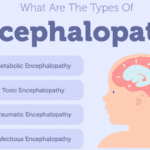
Caring for a loved one with terminal metabolic encephalopathy requires compassion and understanding. This guide provides insights into recognizing symptoms, adapting care strategies, and supporting the patient and caregiver through this challenging journey.

Learn about the differences between pacemakers and ICDs, their functions, and the implications for patients and caregivers. Discover why pacemakers should stay on, and ICDs should be turned off at the end of life for comfort and dignity.
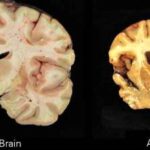
Learn about Chronic Traumatic Encephalopathy (CTE) dementia, its symptoms, diagnosis, and care strategies to support those affected and their families.